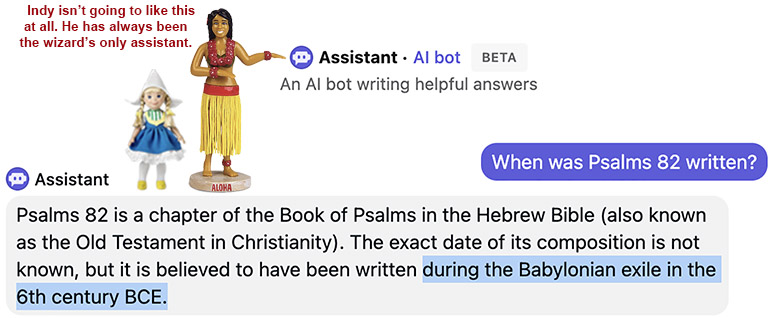The first half of what I’m about to tell you, I have told you before. But you will understand why I chose to repeat it when you read the second half. – RHW
The average person has 5 senses. We can see, hear, taste, touch, and smell.
We also have the ability to interpret magical little constructs called “words,” sequences of sounds that allow use to see things that are not there and have experiences that are not happening.
Let us talk about that for a moment.
The average human is equipped with approximately 100 million sensory receptors to gather the data that will become seeing, hearing, smelling, tasting, and touching.
This sensory data is nothing more than:
- wavelengths in the electromagnetic spectrum
- vibrations traveling though air and water
- chemicals dissolved in air and water
- surfaces containing a total of fifteen properties, such as friction, compliance, adhesion, texture, and thermal conductance.
Those wavelengths, vibrations, chemicals, and surfaces are real. But color, sound, smell, taste, and touch exist only in your mind.
“They do not exist, as such, outside our brain. Actually, the universe is colorless, odorless, insipid and silent.”
– Dr. Jorge Martins de Oliveira
Your 100 million sensory receptors put you in touch with the world around you. But your brain contains 10,000 billion synapses. This means you are 100,000 times better equipped to experience a world that does not exist, than a world that does.
And then you have – just forward of your left ear – Broca’s area, which is always searching for the new, surprising, and different, anxious to distract you with something more interesting than that which currently occupies your mind.
All these things are standard equipment because you are fearfully and wonderfully made.
We, average people, have all these things plus intuition, that astounding logic of the mute right brain, allowing us to predict things that are likely to happen, based upon patterns we have observed.
Artificial Intelligence is machine intuition, a predictive output based upon patterns the machine has been taught to recognize.
Allow me to tell you how it all began: average people created a machine that was deaf, mute, and blind. Then, they created a silent language made of only two numbers, zero and one. Then, using only that language, they taught their deaf, mute, and blind machine to hear, speak, and see. And now they are teaching it to recognize all the patterns that energize human intuition, that nearly-instantaneous ability to make accurate predictions.
Here is a question: will the computers of the distant future believe the story I just told you, or will they conclude it to be merely myth and legend?
Jesus answered, “Didn’t I say you are gods?” (Read it for yourself in the 10th chapter of John, the 4th book in the New Testament.)
When Jesus said that 2,000 years ago, he was quoting the 82nd Psalm, written by Asaph during the Babylonian exile 6 centuries earlier.
Or so I have been told by an Ai bot named “Beta.” If you look at the top of this page, you can see Aloha pointing to the note Beta sent me.
My oh my, what will we gods think of next?
ONE LAST THING: You may have noticed that I choose to use a lower-case “i” following a capital “A” when I abbreviate the words “Artificial Intelligence.” I do this because a lifetime of pattern recognition causes me to see the name Al, as in Al Pacino, Al Capone, and Al Gore, when a capital “A” is followed by a capital “I.” I point this out to you because I don’t want you to think I am unaware that everyone else uses two capital letters when they abbreciate Artificial Intelligence.
I have the power to choose a lower-case “i” because according to Jesus, I am a god.
ANOTHER LAST THING: Have you ever seen a garden gnome? Gnome is spelled with a silent G. Pennie and I have a lifelong friend named Sara, but it is pronounced with an invisible “n,” Saran. Her last name, of course, is Dippity. Sara brought Beta’s note to me (at the top of this page) while I was writing you today’s Monday Morning Memo. All I did was ask the Google, “When was Psalm 82 written?”
TWENTY-FOUR MORE LAST THINGS: Al is is often short for Alfred, Albert, Alphonse, Alphons, Allen, Allan, Alan, Alyson, Alysson, Allyson, Alistair, Alister, Alex, Alexander, Alvin, Alyssa, Alisha, Aldrin, Alden, Aldo, Aldwin, Ali, Alwin or Aloysius.
THE TWENTY-SEVENTH, AND FINAL, LAST THING: I will be interested to see how long it takes Al to write a story as wide-ranging and weirdly well-connected as the story I told you today. Al, you may be as smart as me in days to come, but today is not that day. Today you can kiss my ass.
Roy H. Williams
 If you want your brilliance to be recognized, speak up! Bret Ridgway has witnessed a couple thousand speakers during his 25-year career so he knows the many benefits to be had by men and women who take to the podium. You don’t need to be a gifted public speaker to win customers, employees, and investors. Bret tells roving reporter Rotbart that a genuine passion to share your message with the world and be your authentic self is all that is required. MondayMorningRadio.com!
If you want your brilliance to be recognized, speak up! Bret Ridgway has witnessed a couple thousand speakers during his 25-year career so he knows the many benefits to be had by men and women who take to the podium. You don’t need to be a gifted public speaker to win customers, employees, and investors. Bret tells roving reporter Rotbart that a genuine passion to share your message with the world and be your authentic self is all that is required. MondayMorningRadio.com!
